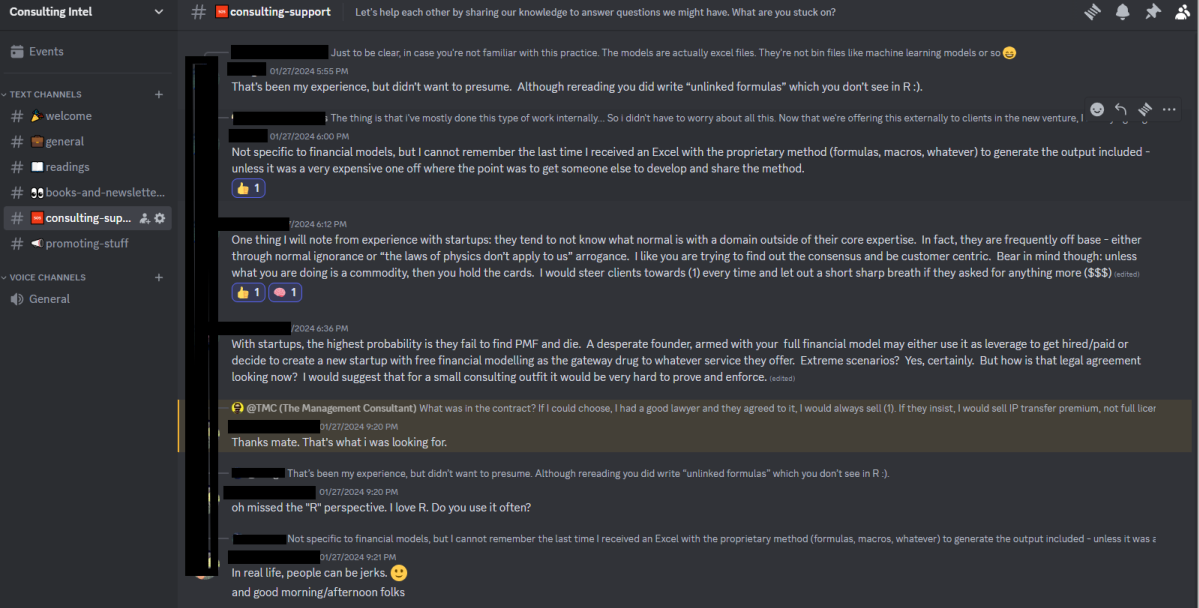The indie hustler’s shell game in the vibe-coding era
Why shipping (too) fast and chasing vibes has become the three-card monte of tech
Hello to the 3,862 subscribers who read Consulting Intel!
It is late afternoon in Naples, just off Via Toledo.
The air is thick with the scent of espresso and motorbike exhaust. A group has gathered on the edge of a piazzetta, half-hidden between a newspaper stand and a graffiti-tagged wall.
Tourists, mostly, and some locals.
There is a small crowd pulled in like moths.
At the center: a man in a navy Adidas tracksuit.
He has a cigarette hanging from his lip and a battered cardboard square laid flat on a milk crate. On the cardboard he has three playing cards, one slightly bent at the corner: it’s the Queen of Hearts.
The man shuffles the cards fast, but not too fast. He is talking constantly, rhythmically, like a drummer keeping the beat.
“Dove sta? Dove sta? Trova la Regina e vinci venti euro!”
He flashes a winning grin. Two men on either side of him (just part of the crowd, you would think) exchange cash and “win” big. They cheer.
The Queen is found again. Another twenty. The mood rises.
They are playing what in Italian we call il gioco delle tre carte, the three-card monte.
A new man steps up, a tourist this time, with t-shirt and backpack, camera strap across the chest. He watches carefully. He is sure he’s got it.
He slaps down his twenty. The card is flipped, but it is not the Queen.
The man in the tracksuit shakes his head, laughs softly, claps the loser on the back: “Eh, oggi non è giornata.”
The cards are already moving again.
What the tourist never sees is that the two earlier winners were in on it, the Queen was never under the card he picked.
This game was never about skill, but theatre!
It was a performance designed to look beatable… until it is your money on the table.
And this, right here, is the blueprint for a large chunk of today’s tech ecosystem.
We no longer build to solve problems. We build to impress the crowd.
We no longer code to serve people. We code to signal momentum.
We have entered the era of three-card monte for developers, and we call it vibe coding.
Just like the street game, it works... until it doesn’t.
Slop and hype
Scroll through indie hacker Twitter (or… X) today, and you will find the same scene, reimagined in pixels: a tweet thread here, lo-fi video demo there, a Stripe screenshot announcing “$1k MRR in 2 days”.
The game is “launch fast, monetize faster.” The Queen of Hearts would be real, sticky, user-loving, problem-solving value, but you never find her.
Because she was never under the card.
Instead, you get slop: shiny wrappers around ChatGPT, apps built in a weekend, designed for the algorithm (not the user), tools that impress the timeline and then gather dust in bookmarks.
The products are fast, the buzz is real, the checkout links work, and yet, something feels off, like you have lost something… like you got played.
Vibe coding, in my understanding, is the practice of building software products using AI tools, guided more by aesthetics, trend-chasing, and emotional resonance on social media, rather than a clear understanding of user needs or meaningful problem-solving.
It prioritizes what feels right now over what works in the long run. The code is real, but the intent is performative. Success is measured not by adoption or impact, but by launch-day buzz, design polish, social validation, and so on.
Vibe coding thrives in an environment where:
- MVPs are judged by how “cool” they look, not how useful they are;
- Founders optimize for virality, not viability;
- Product ideas are chosen because they will “pop on Twitter/X,” not because they matter.
It is not inherently fraudulent, but it is often shallow.
Vibe coding is SaaSOH: software as sleight-of-hand.
The trick is in the crowd, not in the code.
But buzz is not value!
Commercial viability is not proof of impact!
To sell is not to serve
We are in a moment where what sells is seen as what is valuable, but the two are often at odds.
In 19th-century America, travelling salesmen would sell “snake oil” as a cure-all medicine. These tonics were marketed as miracle remedies that could fix anything: joint pain, fatigue, baldness, impotence, you name it.
The truth is, most of these snake oils contained nothing useful, just alcohol, turpentine, or opium.
Total scams.
And yet… they sold, sometimes very well.
Fyre Festival sold.
So do 95% of Chrome extensions that nobody actually needs.
In the tech world, selling a product has become more about optics than outcomes. If the site loads fast, the UI is appealing, and the founder tweets many emojis, that’s often enough to call it a business.
In my view, this is not product-market fit. It is more of a narrative-market fit: a story, not a solution (or, in Naples, another flipped card.)
Genuine value that survives hype cycles, that gets used even when no one is watching, takes more than vibes.
It takes taste. It takes domain insight. It takes time. And that makes it a terrible fit for the Twitter attention span.
Look, I get why SAP gets a lot of crap. It is clunky and ugly (it is a German product after all). It feels like something built in a Cold War bunker by engineers who had never heard of “user experience.” And yet… it runs the world! Literally!
Multinational supply chains, payroll for Fortune 100s, inventory for global manufacturers, and entire governments rely on it. It was born in the 1970s and, like all ugly things that work, it just refuses to die.
And do you know why?!
🚨 Elephas: The Knowledge Tool Built for Consultants
Are you drowning in client research, frameworks, and deliverables?
Elephas is the Mac knowledge assistant that helps consultants organize and access information instantly. Store all your client materials in one searchable brain, create professional diagrams with a click, and transform rough notes into polished deliverables.
What makes Elephas perfect for consulting work:
Powerful search across all your knowledge
Works offline for complete client confidentiality
Creates mind maps and diagrams automatically
Stop wasting billable hours hunting for information. Elephas helps you deliver higher quality work in less time - exactly what you need when scaling your practice.
Want to see how the best consultants stay organized?
Because it solves real, non-negotiable problems. Because it works. Because in the real world, being sexy is optional, but being reliable is not.
Now, fast forward to a big part of today’s AI startup ecosystem, and what do you see?
People are building pixelated games of flying airplanes, GPT wrappers that turn your Slack messages into haikus, Chrome extensions that give your browser tab “vibes”…
WTF!!
SAP is not cool, it never will. But it does payroll. Your vibecoded side project got 1,200 upvotes, looked beautiful, people clicked, maybe even signed up… but nobody came back the next day.
It is forgotten already (Disclaimer. Yes, there are exceptions. No, I don’t want to generalize. Just talking about the general vibe here…).
Real builders do not ship in 24 hours. They obsess. They revise. They speak to users. They iterate in silence before they ever launch. And when they do, it is not (only) to win likes, but it is to solve something real.
I appreciate that, in 2025, that approach feels boring, because it is harder to monetize, and impossible to gamify.
Which brings me to the real question.
Is this what we want from technology? Especially a technology as powerful as AI? Do we want it treated like a carnival booth? Something you throw wrappers on and resell with a Stripe link and a catchy name? Do we want to build a future on vibes and templates and dopamine-fueled timelines? Or do we want to build tools that elevate us, challenge us, restore our agency?
If we are not careful, AI will not be used to illuminate the human experience, but to manufacture slop faster, A/B test the next con, automate il gioco delle tre carte at scale.
And we will cheer for it, because the launch thread went viral, and it’s making money.
Deep down, we will feel that something is missing. And we will be right.
What do you think?
Ciao, until next time! 👋
Get 10% OFF LEADERTOOLS using the Consulting Intel discount!
The Leaders Toolkit is a deck of 52 tools, frameworks and mental models to make you a better leader. Each card is highly actionable with zero fluff or jargon.
These tools are used by people working at some of the best run companies in the world such as Amazon, Hubspot and Google. Grab your Leader’s Toolkit at LeaderTools.co
Use code CONSULTANT10 for 10% off.
PS: If you like this newsletter, I have one huge favor to ask.
Share it around with friends, family and colleagues.
This is the most effective way to support me (…and to keep me motivated to continue writing 😁).
Thank you 👇👇👇
🎯 INTERESTING SH*T
A couple of things I found on the internet that you may like…
Well, only one thing this time, but a very cool one!
This is the back-cover text for my upcoming book Beyond Slides. What do you think?
Please comment or email me directly! I would greatly appreciate your feedback and input.
👀 JOIN THE DISCORD SERVER
If you like this newsletter, you will love our Discord Server.
In there, you will find a tight-knit community of 220+ management consultants from all over the world discussing real-life challenges, giving each other support and recommending the good stuff to keep our knowledge top notch.












The proportion of our lives that involves some media intermediation (a repetition, I know) is increasing, which by definition changes the incentives and consequences.
For this environment, vibes is a very well adapted way of operating, albeit a nihilistic and stochastic one.
If the game is increasingly made to reward attention capture, it makes sense that that becomes the leading motivation. Again, don’t love it, but can’t see it developing in different ways, at least outside some pockets of more “realness”
I think the text is really encouraging. From my perspective, it might be worth addressing those super trendy ideas out there: 'AI will wipe out consulting,' or 'AI will save you $100K on advisors.' Or even better, how about some advice on how to thrive in a world where AI is coming for your job? (Haha, just kidding!)
Anyway, I seriously can't wait for your book!